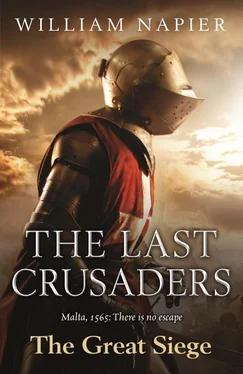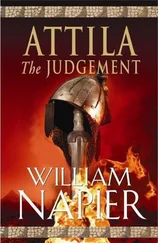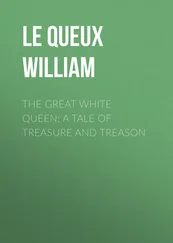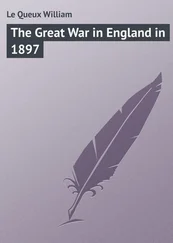William Napier - The Great Siege
Здесь есть возможность читать онлайн «William Napier - The Great Siege» весь текст электронной книги совершенно бесплатно (целиком полную версию без сокращений). В некоторых случаях можно слушать аудио, скачать через торрент в формате fb2 и присутствует краткое содержание. Жанр: Исторические приключения, на английском языке. Описание произведения, (предисловие) а так же отзывы посетителей доступны на портале библиотеки ЛибКат.
- Название:The Great Siege
- Автор:
- Жанр:
- Год:неизвестен
- ISBN:нет данных
- Рейтинг книги:5 / 5. Голосов: 1
-
Избранное:Добавить в избранное
- Отзывы:
-
Ваша оценка:
- 100
- 1
- 2
- 3
- 4
- 5
The Great Siege: краткое содержание, описание и аннотация
Предлагаем к чтению аннотацию, описание, краткое содержание или предисловие (зависит от того, что написал сам автор книги «The Great Siege»). Если вы не нашли необходимую информацию о книге — напишите в комментариях, мы постараемся отыскать её.
The Great Siege — читать онлайн бесплатно полную книгу (весь текст) целиком
Ниже представлен текст книги, разбитый по страницам. Система сохранения места последней прочитанной страницы, позволяет с удобством читать онлайн бесплатно книгу «The Great Siege», без необходимости каждый раз заново искать на чём Вы остановились. Поставьте закладку, и сможете в любой момент перейти на страницу, на которой закончили чтение.
Интервал:
Закладка:
‘The whole island of Malta will rock about on the sea,’ said the forgemaster, spitting out a mouthful of charcoal dust and swiping his sweaty face with the back of his hand. ‘Like a fisherman’s boat in a storm.’
Mustafa’s eyes gleamed.
He interrogated provisioners and quartermasters, inspected warehouses filled with everything from gunstocks to biscuits to opium supplies to massive pyramids of cannonballs, surveyed acres of hundredweight gunpowder barrels. There were wooden frames for making speedy breastworks, hides for protecting siege towers, sacking for trenches, and crates full of double-baked biscuit that would last for ever, though they would also break your teeth.
There were stables full of horses and oxen, all needing to be transported and fed, so they could drag gun carriages and platforms at the siege. When their strength finally failed, they would be eaten.
He questioned the shipmasters, and looked in on the Christian slaves, waiting in their pens to be chained to the rowing bench again.
‘Only a little while yet,’ he rasped through the bars at the huddled wretches within. ‘We must catch the spring tide, when there’s war in the air!’
On a windy day in early March, Mustafa for the first time stepped aboard his fig-wood flagship with its high stern and its twenty-eight rowing benches aside. Al-Mansour . The Victorious. She would fly like the wind. From the mast above fluttered and snapped the green silk banner of Islam with its crescent moon and its verses from the Koran, and at the stern was planted the standard of the Sultan: a golden globe with horsehair tassels, symbolising the globe of the world, which he was destined to rule.
Mustafa gripped the taffrail hard, his lips clenched, and glared back ferociously at the workshops and furnaces of the Bosphorus. When? It was time to sail. It was time to fight.
Cannons firing salutes, pipes wailing and cymbals clashing. Janizaries in their plumes of heron and ostrich feather, holy men in green turbans, great drums beating, marching in a slow stately rhythm out under Palace Point to the waiting galleys. The greatest naval venture in four centuries of Ottoman history. Wind batting the sails, salt tang on the air. The ground trembling under the weight of those sixteen-team ox-carts and their monstrous cannon, and the remorseless thunder of the drums.
All Europe knew of the frenetic preparations in the empire of the Turk. But where would his scimitar fall? Some said Cyprus, some said Sicily.
One man knew, and sent out word. Grand Master Jean Parisot de la Valette, of the Knights of St John of Malta.
He knew.
Across Europe, old men with bent backs and white beards shook out their time-worn tabards. White cross on red. The tabard of war. Elderly retainers oiled old-fashioned hauberks of mail and whetted ancient blades.
The sword of Islam was raised, pointing straight at the heart of the Christian Sea. And if Europe’s kings and princes would not go to the aid of that small beleaguered island, then loyal knights might yet.
Let him laugh and mock, l’uomo nuovo, l’uomo universale , and count his ducats, and say that money and science, knowledge and advancement were now the thing. The Age of Machiavelli was come, the Age of Chivalry was dead. From the villages of Spain and Italy, Provence and Auvergne they still came, the old knights, the old brothers. Some on horses, some on donkeys, some on dusty mules.
Some sang the old ballad for company as they rode.
Then rising from a doubtful seat and half-attainted stall ,
The last knight of Europe takes weapons from the wall ,
The last and lingering troubadour to whom the bird has sung ,
That once went singing southward when all the world was young .
In that enormous silence, tiny and unafraid ,
Comes up along a winding road the noise of the Crusade …
A song to keep them company on the perilous voyage to Malta, and into the eye of the coming storm.
11
‘So, Matilda,’ said Edward Stanley. ‘What do you know of foreign parts?’
Hodge was whittling a stick. ‘My name’s Hodge,’ he said woodenly.
Stanley bowed low. ‘A thousand pardons.’
Hodge took a deep breath. ‘Well. I know the country round Cambridge is a flat and sodden country, not fit for any but fen-men and fish. Men of Essex are turbulent and lawless and born cheats, and men of London the same, only worse. Further north they are coarse as farmyard swine and drop their breeches without shame and make their business in the middle of the street. Men of Lincolnshire are notorious dullards and villains, and men of Lancashire and Yorkshire are worse, so quarrelsome and stiffnecked they would find fault with a fat goose.’
‘By foreign I meant … out of England.’
‘Ah, Wales,’ said Hodge. ‘They are barely of the race of men. They live in caves and eat raw mutton and speak in a tongue so barbarous it frightens the birds off the trees. Men of the south and west be Welsh too in all but name, idle and sly and deceitful from the first day out of their mother’s wombs. ’Tis only in Shropshire you’ll find honest men, and only in the parishes west of Shrewsbury. The rest are fools.’
Nicholas laughed. It felt like the first time he had laughed in months.
Hodge drew breath.
‘Across the sea they are all foreigners. Sail to Scotland or Ireland and you’ll wish you’d stayed home, even with a witch for a wife, my old dad used to say. The Scots are nought but barbarians, they go naked all year but for animal skins. The Irish are worse, with hardly the wit to feed themselves and so starve often.
‘The Germans are fat drunkards. The Danes, drunkards also. Dutchmen, drunkards and gluttons to boot, with huge swag-bellies and beards thick with grease from their last dinner. They skate over ice on cows’ shoulder bones, though it’s a wonder the ice holds ’em. The French are a vile race, slothful as swine and as evil-smelling, foppish, curtseying, arrant, vain, silk-dressed perfumed treacherous deceitful cowardly knaves one and all, forever bowing the head or bending the buttock to any who will flatter them.’
‘Hear hear,’ said Smith. ‘The lad speaks some sense.’
‘The Switzers fight well but stink of cheese, for they eat nothing else. Of the Austrians I know not and care less, also the Hungarians, the Polacks, and others to the cruel cold East. The Russians live in everlasting ice and snow and eat their own parents when they die. Your Spaniard is cruel and treacherous, conceited and a braggard, your Italian avaricious, shallow and malign, and as given to incest as any villain in Norfolk. The Greeks are swarthy and notorious fools.
‘Beyond them they are not even Christian. The infidel Turks go circumcised and have four wives apiece and murder their own brothers, and “to turn Turk” is to turn evil and worship the Devil, who they call Mahound. Their brothers the Arabs ride camels and their evil and cruelty are almost beyond telling. The Jews we know of, wandering gold-hoarders and Christ-deniers, and then there’s the Ethiop, who’s barbarous and black as coal and couples with monkeys. Beyond him is the Parsee, the Hindoo and the Chinaman, all idolaters and devils. In the New World there are none but savage men who live in trees, often with tails, who some say are not truly human at all.’
‘Well,’ said Stanley. ‘Though you have not gone far in the world, friend Hodge, yet you are as stuffed full of opinions as a puritan preacher.’
Hodge regarded him impassively.
‘I think you will enjoy your foreign travels.’
‘Enough bandying words,’ said Smith, standing abruptly. ‘Here. Take this.’
And he handed Nicholas a sword.
Читать дальшеИнтервал:
Закладка:
Похожие книги на «The Great Siege»
Представляем Вашему вниманию похожие книги на «The Great Siege» списком для выбора. Мы отобрали схожую по названию и смыслу литературу в надежде предоставить читателям больше вариантов отыскать новые, интересные, ещё непрочитанные произведения.
Обсуждение, отзывы о книге «The Great Siege» и просто собственные мнения читателей. Оставьте ваши комментарии, напишите, что Вы думаете о произведении, его смысле или главных героях. Укажите что конкретно понравилось, а что нет, и почему Вы так считаете.












